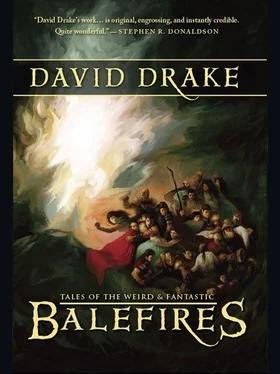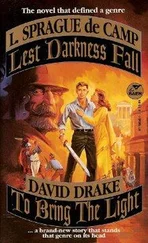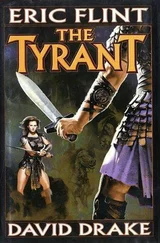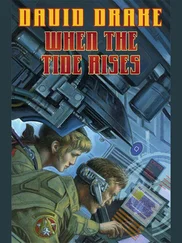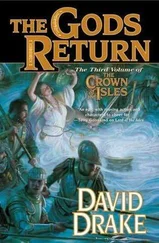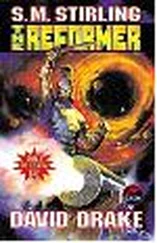David Drake - Balefires
Здесь есть возможность читать онлайн «David Drake - Balefires» весь текст электронной книги совершенно бесплатно (целиком полную версию без сокращений). В некоторых случаях можно слушать аудио, скачать через торрент в формате fb2 и присутствует краткое содержание. Жанр: Фантастика и фэнтези, на английском языке. Описание произведения, (предисловие) а так же отзывы посетителей доступны на портале библиотеки ЛибКат.
- Название:Balefires
- Автор:
- Жанр:
- Год:неизвестен
- ISBN:нет данных
- Рейтинг книги:5 / 5. Голосов: 1
-
Избранное:Добавить в избранное
- Отзывы:
-
Ваша оценка:
- 100
- 1
- 2
- 3
- 4
- 5
Balefires: краткое содержание, описание и аннотация
Предлагаем к чтению аннотацию, описание, краткое содержание или предисловие (зависит от того, что написал сам автор книги «Balefires»). Если вы не нашли необходимую информацию о книге — напишите в комментариях, мы постараемся отыскать её.
Balefires — читать онлайн бесплатно полную книгу (весь текст) целиком
Ниже представлен текст книги, разбитый по страницам. Система сохранения места последней прочитанной страницы, позволяет с удобством читать онлайн бесплатно книгу «Balefires», без необходимости каждый раз заново искать на чём Вы остановились. Поставьте закладку, и сможете в любой момент перейти на страницу, на которой закончили чтение.
Интервал:
Закладка:
Which I mostly didn't. I was a full-time attorney and I had no intention of changing that-though I did before another year was out. (My life appears to conform to the evolutionary model of punctuated equilibrium.)
I'd sold stories to Jim Baen when he was editor of Galaxy magazine. When he became the SF editor of Ace Books he bought Hammer's Slammers and also started a paperback magazine, Destinies, which paid excellent rates. Over the years (and through various title changes). Destinies published a lot of my best short fiction.
I wrote "Men Like Us," which I thought was the best thing I'd written to date, and sent it to Jim. Jim thought it was the best thing I'd written also, and instantly rejected it on the grounds that it supported a political philosophy with which he violently disagreed.
Well, that was fair: it was his magazine, after all. I sent the story to Omni, the slick-paper SF/fact magazine, where Ben Bova (who'd taken a number of my stories as editor of Analog) bought and published it. My wife and I used the $800 to vacation in New Orleans, where I got to know John Brunner (who had Ballantine Books hire me as his tech editor on the historical novel he was writing for them) and fired silenced submachine guns in the swamps across Lake Pontchartrain.
"Men Like Us" was the only story I sold to Omni and just about the only one that I sent there. My head wasn't normally in places that fit Omni's editorial policies, whereas Jim Baen and I usually meshed very well (partly because we'd knocked so many pieces off one another over the years). This one time, though…
The story itself owes something to a novella by Poul Anderson, "UN-Man." In his early days, Poul's fiction could often be described as proselytizing for world government. Poul had an abrupt shift in philosophy during the 1950s, so that his later work frequently shows a libertarian bent. (In almost all cases, the story values remain strong; I'm talking about fiction with philosophical underpinnings, not propaganda screeds.)
Poul's later work has sparked a number of stories from me; "UN-Man," however, was early… which may have something to do with the reactions both of Omni and of Jim Baen to my story.
I was born only weeks after the first atomic bomb, and I grew up through the depths of the Cold War when nuclear war seemed more probable than not. I still think "Men Like Us" is one of the best short stories I've written; and it's the one that always scares me when I reread it.
There was a toad crucified against them at the head of the pass. Decades of cooking in the blue haze from the east had left it withered but incorruptible. It remained, even now that the haze was only a memory. The three travelers squatted down before the talisman and stared back at it.
"The village can't be far from here," Smith said at last. "I'll go down tomorrow."
Ssu-ma shrugged and argued, "Why waste time? We can all go down together."
"Time we've got," said Kozinski, playing absently with his ribs as he eyed the toad."A lot of the stories we've been told come from ignorance, from fear. There may be no more truth to this one than to many of the others. We have a duty, but we have a duty as well not to disrupt needlessly. We'll wait for you and watch."
Smith chuckled wryly. "What sort of men would there be in the world," he said, "if it weren't for men like us?"
All three of them laughed, but no one bothered to finish their old joke.
The trail was steep and narrow. The stream was now bubbling twenty feet below, but in springtime it would fill its sharp gorge with a torrent as cold as the snows that spawned it. Coming down the valley, Smith had a good view of Moseby when he had eased around the last facet of rock above the town. It sprawled in the angle of the creek and the river into which the creek plunged. In a niche across the creek from the houses was a broad stone building, lighted by slit windows at second-story level. Its only entrance was an armored door. The building could have been a prison or a fortress were it not for the power lines running from it, mostly to the smelter at the riverside. A plume of vapor overhung its slate roof.
One of the pair of guards at the door of the powerplant was morosely surveying the opposite side of the gorge for want of anything better to do. He was the first to notice Smith. His jaw dropped. The traveler waved to him. The guard blurted something to his companion and threw a switch beside the door.
What happened then frightened Smith as he thought nothing in the world could frighten him again: an air-raid siren on the roof of the powerplant sounded, rising into a wail that shook echoes from the gorge. Men and women darted into the streets, some of them armed; but Smith did not see the people, these people, and he did not fear anything they could do to him.
Then the traveler's mind was back in the present, a smile on his face and nothing in his hands but an oak staff worn by the miles of earth and rock it had butted against. He continued down into the village, past the fences and latrines of the nearest of the houses. Men with crossbows met him there, but they did not touch him, only motioned the traveler onward. The rest of the townsfolk gathered in an open area in the center of the town. It separated the detached houses on the east side from the row of flimsier structures built along the river. The latter obviously served as barracks, taverns, and brothels for bargees and smelter workers. The row buildings had no windows facing east, and even their latrines must have been dug on the river side. A few people joined the crowd from them and from the smelter itself, but only a few.
"That's close enough," said the foremost of those awaiting the traveler. The local was a big man with a pink scalp. It shone through the long wisps of white hair which he brushed carefully back over it. His jacket and trousers were of wool dyed blue so that it nearly matched the shirt of ancient polyester he wore over it. "Where have you come from?"
"Just about everywhere, one time or another," Smith answered with an engaging grin. "Dubuque, originally, but that was a long time ago."
"Don't play games with the Chief," hissed a somewhat younger man with a cruel face and a similar uniform. "You came over the mountains; andnobody comes from the Hot Lands."
Chief of Police, Smith marveled as he connected the title and the shirts now worn as regalia. Aloud he said, "When's the last time anybody from here walked over the mountains? Ever?"
Bearded faces went hard. The traveler continued, "A hundred years ago, two hundred, it was too hot for you to go anywhere that side of the hills… but not now. Now-maybe I'll never sire children of my own, but I never needed that, I needed to see the world. And I have done that, friends."
"Strip him," the Chief said flatly.
Smith did not wait for the grim-looking men to force him. He shrugged off his pack and handed it to the nearest of the guards armed with crossbows and hand-forged swords. He said, "Gently with it, friend. There's some of it that's fragile, and I need it to trade for room and board the next while." He began to unhook his leather vest.
Six of the men besides the Chief wore the remnants of police uniforms over their jackets. They were all older, not lean warriors like the crossbowmen-but they carried firearms. Five of them had M16 rifles. The anodized finish of the receivers had been polished down to the aluminum by ages of diligent ignorance. The sixth man had a disposable rocket launcher, certain proof that the villagers here had at some time looted an army base-or a guard room.
"Just a boy from the Midwest," Smith continued pleasantly, pulling out the tails of his woolen shirt. "I wanted to see New York City, can you believe that? But we'll none of us live forever, will we?"
He laid the shirt, folded from habit, on his vest and began unlacing his boots of caribou leather. "There's a crater there now, and the waves still glow blue if there's even an overcast to dim the sun. Your skin prickles."
Читать дальшеИнтервал:
Закладка:
Похожие книги на «Balefires»
Представляем Вашему вниманию похожие книги на «Balefires» списком для выбора. Мы отобрали схожую по названию и смыслу литературу в надежде предоставить читателям больше вариантов отыскать новые, интересные, ещё непрочитанные произведения.
Обсуждение, отзывы о книге «Balefires» и просто собственные мнения читателей. Оставьте ваши комментарии, напишите, что Вы думаете о произведении, его смысле или главных героях. Укажите что конкретно понравилось, а что нет, и почему Вы так считаете.
